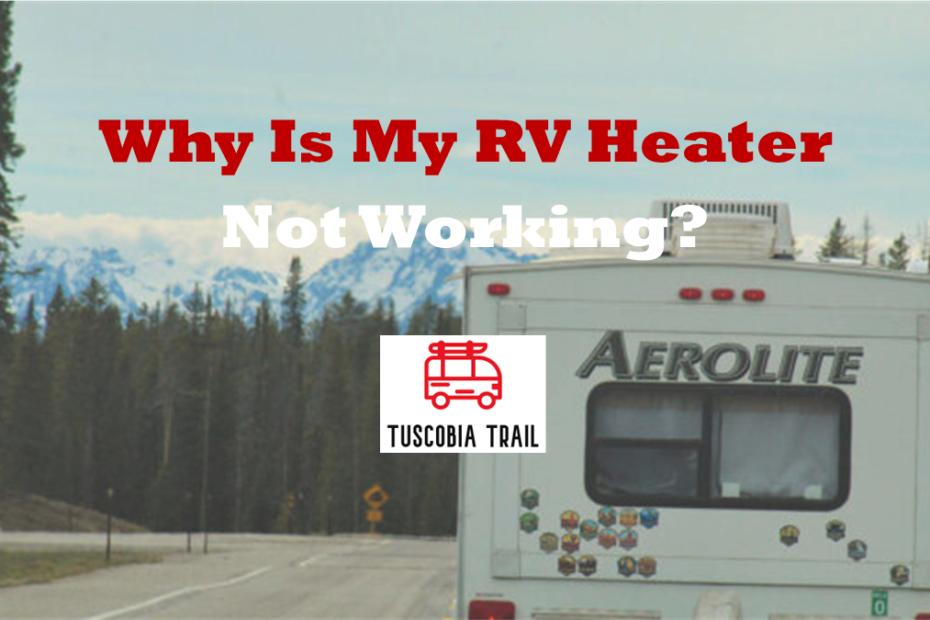When the temperature drops and your RV’s heater fails to perform, it can quickly turn a cozy camping trip into a chilly nightmare. You’ll need to know why is my RV heater not working?
The good news it happens to the best of us and you don’t need to let any heating issues cut your adventure short, even if you are “enjoying” winter van life.
There are some simple steps you can take to diagnose and potentially fix common RV heater problems, ensuring you stay warm and comfortable on the road.
Understanding Your RV’s Heating System
Before diving into any troubleshooting, it’s crucial to familiarize yourself with the key components of your RV’s heating system.
You are likely to have some of the following in different heating systems.
- Propane tank or Diesel tank
- Propane lines
- Thermocouple
- Pilot light (in older models)
- Electrical components
- Airflow mechanisms
Common Issues and Solutions
No Heat Output
If your system is running but not producing heat, start by checking the propane tank. Ensure it’s turned on and has sufficient fuel.
Test other gas-powered appliances to determine if the issue is with the ignition or the propane supply.
Thermostat Issues
A frequently overlooked cause is the thermostat being set too low or incorrectly configured. Ensure it is set to “Heat” and adjusted to a temperature higher than the current ambient temperature.
Propane-Related Problems
Cold weather can decrease propane tank pressure. If connections are secure but the system still isn’t working, try warming up the tank indoors before reconnecting it.
If the blower turns on but the furnace does not ignite, there may be an issue with the propane supply. Check that the propane tank is full and that the valve is open.
Air trapped in the propane line can also prevent ignition; running a gas appliance can help purge air from the line.
Ignitor Malfunction
A faulty ignitor can prevent the furnace from lighting. Listen for the ignitor clicking when the furnace attempts to start. If you smell propane but do not hear the ignitor, it may need cleaning or replacement.
The sail switch is responsible for ensuring there is adequate airflow before ignition. If this switch is stuck or malfunctioning, it can prevent the furnace from starting.
Thermocouple Troubles
The thermocouple is a critical safety component. Check its positioning and cleanliness. If it’s faulty, replacement is relatively inexpensive, typically around $10.
Electrical Concerns
Voltage issues, damaged wiring, battery corrosion, and tripped circuit breakers can all cause heating problems.
Inspect the 12-volt fuse in the RV’s distribution panel. If it is blown, replace it with one of the same size. A tripped circuit breaker can also interrupt power to the heater.
Loose or damaged wiring can also disrupt the electrical supply to the heater. Inspect all connections and wiring for signs of wear or disconnection.
Low Battery Voltage
RV heaters typically require a sufficient 12V power supply to operate. If the heater does not turn on at all, check the battery connections for corrosion and ensure the battery is charged.
Check your battery voltage (you need at least 10.5V for ignition and 12V for the fan), inspect wiring, clean any battery corrosion, and reset tripped circuits. A voltage below 12V can prevent the heater from functioning.
Airflow Obstructions
If the pilot light and thermocouple are functioning but the furnace won’t ignite, examine the sail switch. This internal flow switch requires adequate airflow to operate. Clean or replace it if necessary.
Insufficient airflow can hinder the furnace’s ability to ignite. Check for blockages in the air intake or exhaust vents, and ensure that return air vents are clear of debris.
A dirty sail switch, which detects airflow, can also cause issues.
High-Temperature Limit Switch
If the furnace ignites but shuts off prematurely, the high-temperature limit switch may be tripped. This safety feature prevents overheating and may need to be reset or replaced.
RV Heater Replacement Costs
If you have investigated why my RV heater is not working and found the problem and repairs aren’t feasible, you may need to consider replacement options.
Remember, a complete heating system offers more comfort but requires professional installation and regular propane refills if you are changing the entire system.
Some outline replacements costs are:
- Space heaters: $30-$300 (suitable for smaller RVs)
- RV thermostats: $60-$200 (not including professional installation)
FAQs
Why is my RV heater blowing cold air?
This could be due to a propane supply issue, a faulty thermocouple, or problems with the ignition system.
How often should I service my RV heater?
It’s recommended to have your RV heater serviced annually, preferably before the cold season begins.
Can I use a residential space heater in my RV?
While possible, it’s not recommended due to power consumption and safety concerns. RV-specific heaters are designed for the unique needs of recreational vehicles.
What’s the most common cause of RV heater failure?
Low battery voltage is a frequent culprit, as the heating system requires sufficient power to operate correctly.
Is it normal for my RV heater to smell when first used after a long period?
A slight odor is normal when first using the heater after storage, as dust may have accumulated. However, if the smell persists or is strong, have your system checked for potential gas leaks.
